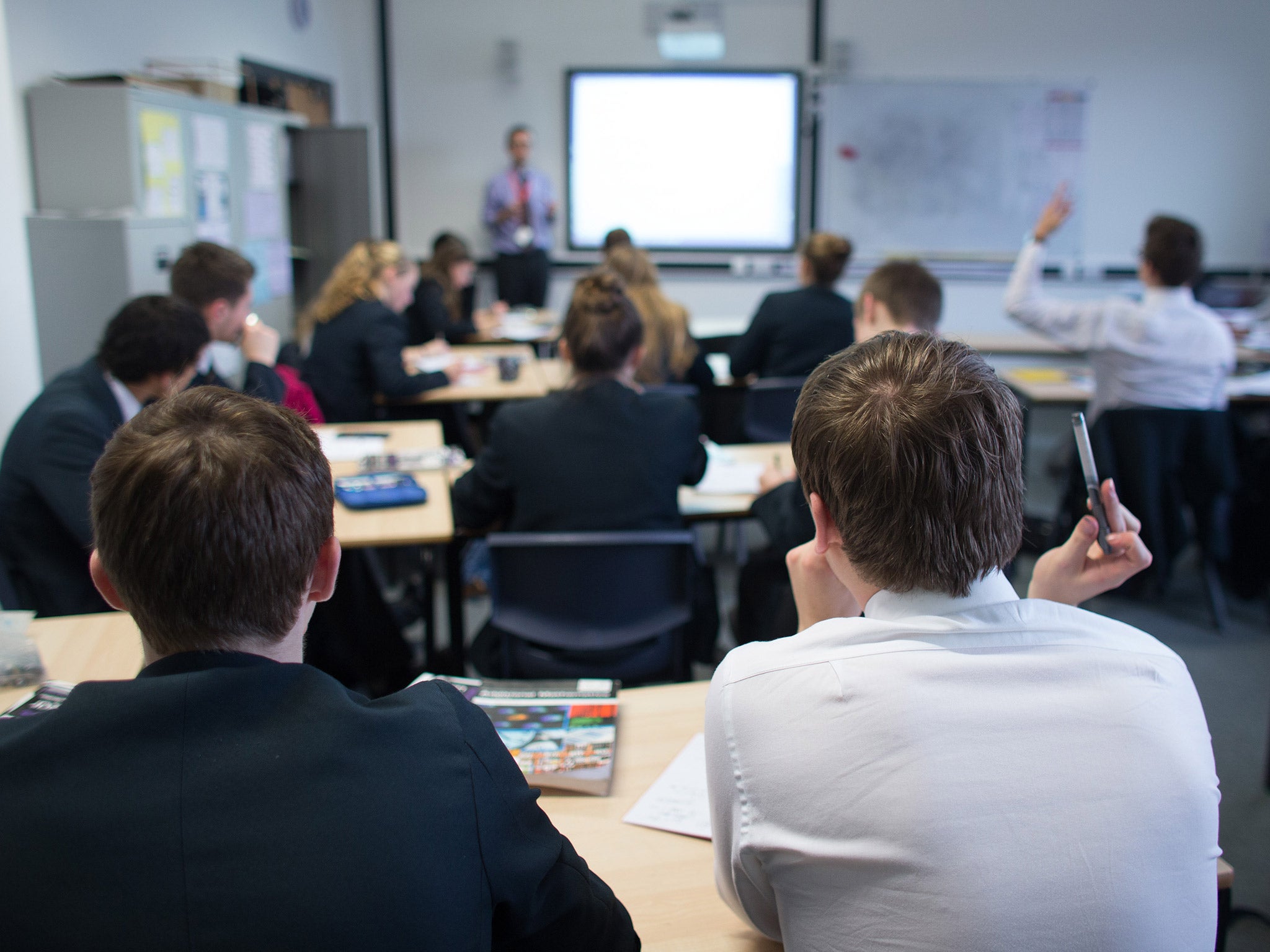Mandatory Christian prayers in schools 'should be axed'
An influential commission recommends radical teaching reforms to adapt to increasing diverse and secular UK schools

Your support helps us to tell the story
From reproductive rights to climate change to Big Tech, The Independent is on the ground when the story is developing. Whether it's investigating the financials of Elon Musk's pro-Trump PAC or producing our latest documentary, 'The A Word', which shines a light on the American women fighting for reproductive rights, we know how important it is to parse out the facts from the messaging.
At such a critical moment in US history, we need reporters on the ground. Your donation allows us to keep sending journalists to speak to both sides of the story.
The Independent is trusted by Americans across the entire political spectrum. And unlike many other quality news outlets, we choose not to lock Americans out of our reporting and analysis with paywalls. We believe quality journalism should be available to everyone, paid for by those who can afford it.
Your support makes all the difference.Schools should no longer be forced by law to hold daily acts of Christian worship, as part of major reforms reportedly outlined by an influential commission.
A report by the Commission on Religion and Belief in British Public Life, which includes the former Archbishop of Canterbury Rowan Williams, said the arguments for mandatory Christian prayers in secular schools was "no longer convincing".
Under existing laws, schools have a statutory duty to ensure pupils take part “each school day in an act of collective worship”. Parents in England and Wales have a right to withdraw their child from such services, but this is not the case in Scotland and Northern Ireland.
While faith schools are permitted to hold acts of worship in accordance with their religious character, in secular schools the worship must be “wholly or mainly of a broadly Christian character”. This also applies to academies, free schools and foundations schools.
According to the Observer, a draft of the Commission's report suggests replacing this with a more inclusive "time for reflection".
The Commission includes members from all the UK's major religions, and is being led by the former High Court judge Elizabeth Butler-Sloss.
It reportedly suggests new guidelines "to build on current best practice for inclusive assemblies" which would draw upon a range of sources and "contribute to their spiritual, moral, social and cultural development".
And it warns against the greater segregation of communities as a result of the "negative practical consequences of selection by religion" in faith schools.

The commission was established by the Woold Institute, which studies relations between Christians, Muslims and Jews and includes, Iqbal Sacranie, the former general secretary of the Muslim Council of Britain, and Lord Woolf, the former chief justice.
The recommendations come after a report published by the Arts and Humanities Research Council (AHRC) last month, which urged for “fresh thinking” on school collective worship and more transparency in its implementation.
In that report, senior academics said the statutory duty to organise prayers in schools lacked "a clear and accepted rationale" and has been “controversial for decades”.
The National Secular Society (NSS) says the UK is "the only Western democracy to legally impose worship in publicly funded schools".
The NSS argues assemblies should “play an important role in fostering a sense of community in schools” and “with an ethical dimension”, they can contribute to pupils’ development.
Keith Porteous Wood, executive director of the NSS, said: "The right to withdraw from school worship is neither a practical nor an acceptable compromise. It inconveniences schools and leaves pupils ostracised, so parents wishing to withdraw their children are left in an impossible position.
"Many schools flout the law because teachers know how inappropriate and unworkable it is, so in those cases abolition would simply formalise the arrangement that already exists, and it would give this common-sense approach a legal basis.”
A Department for Education spokesperson said: “The current requirements for a daily act of collective worship won’t be changing – collective worship plays an important role in schools. It encourages children to reflect on belief, and helps shape fundamental British values of tolerance, respect and understanding for others.
“It is for schools to tailor their provision to suit the needs of their pupils, and parents can choose to withdraw their children from all or any part of collective worship.”
Join our commenting forum
Join thought-provoking conversations, follow other Independent readers and see their replies
Comments